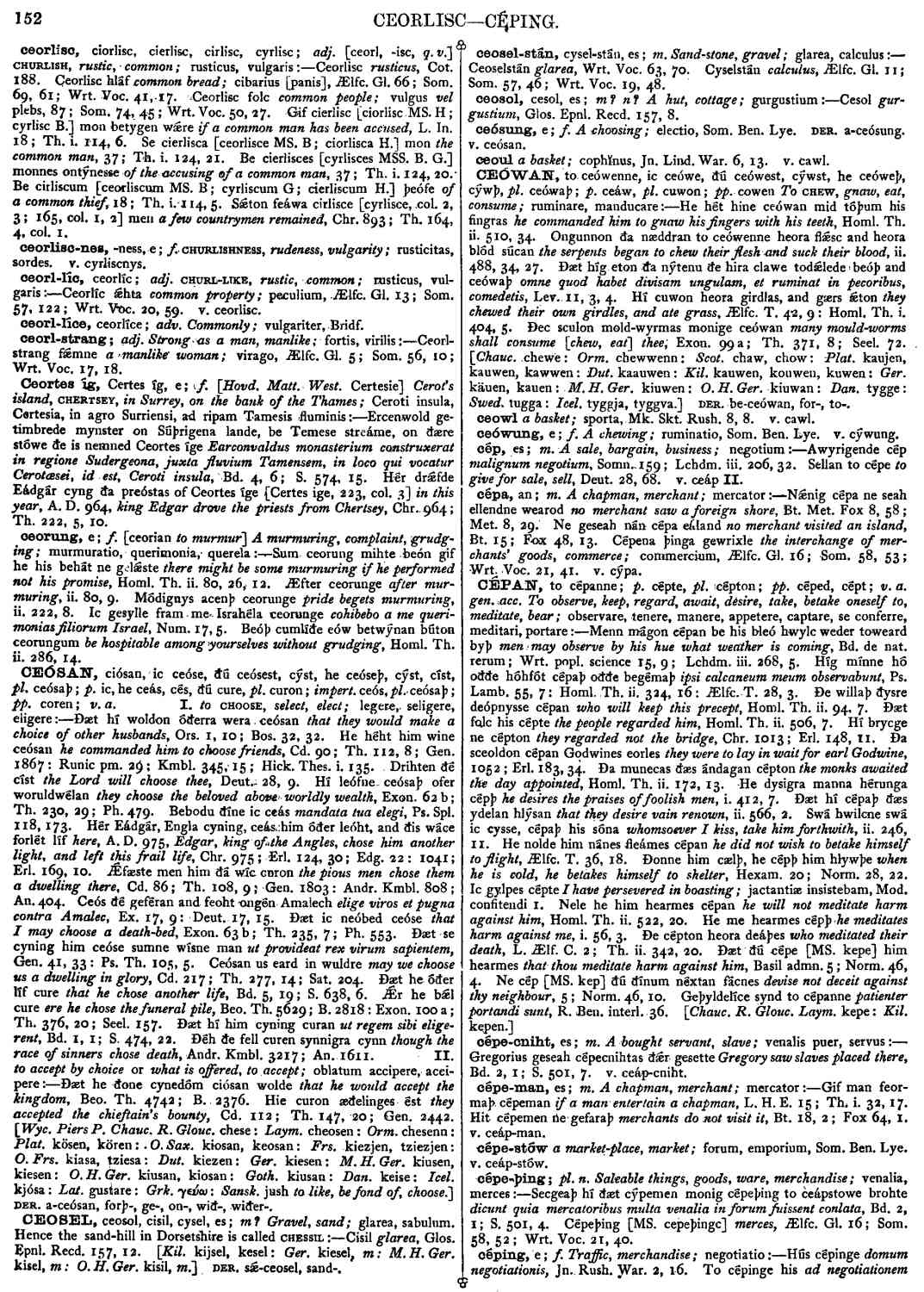CEÓWAN
- verb [ strong ]
-
He hét hine ceówan mid tóþum his fingras
he commanded him to gnaw his fingers with his teeth,
- Homl. Th. ii. 510, 34 .
-
Ongunnon ða næddran to ceówenne heora flǽsc and heora blód súcan
the serpents began to chew their flesh and suck their blood,
ii.- 488, 34, 27 .
-
Ðæt híg eton ða nýtenu ðe hira clawe todǽlede beóþ and ceówaþ
omne quod habet divisam ungulam, et ruminat in pecoribus, comedetis,
- Lev. 11, 3, 4 .
-
Hí cuwon heora girdlas, and gærs ǽton
they chewed their own girdles, and ate grass,
- Ælfc. T. 42, 9: Homl. Th. i. 404, 5 .
-
Ðec sculon mold-wyrmas monige ceówan
many mould-warms shall consume [chew, eat] thee;
- Exon. 99a ;
- Th. 371, 8 ;
- Seel. 72 .
Bosworth, Joseph. “CEÓWAN.” In An Anglo-Saxon Dictionary Online, edited by Thomas Northcote Toller, Christ Sean, and Ondřej Tichy. Prague: Faculty of Arts, Charles University, 2014. https://bosworthtoller.com/6066.
Checked: 1